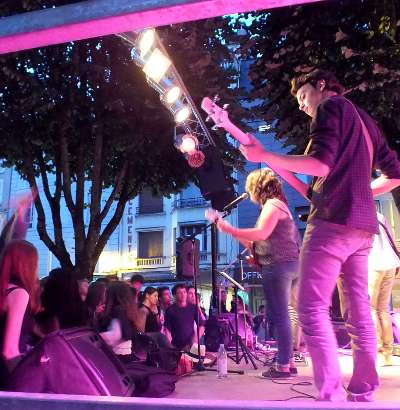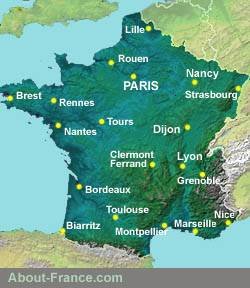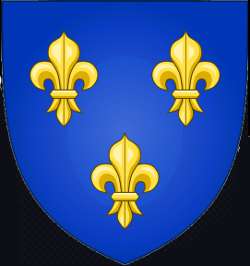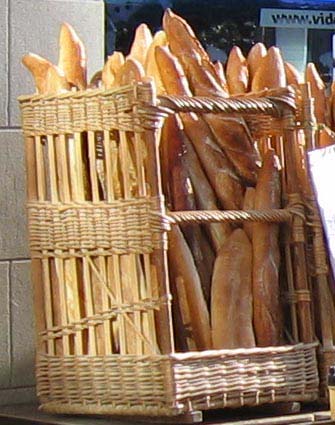
- ► Essential France
- ► Practical visitor info
- ► Where to go
- ► What to see and do

An
A-Z
Dictionary of France
F
F

Photo top of page: Music in the streets on the Fête de la musique
Fabius, Laurent (Adj. Fabiusien) Born 1946. - Former socialist Prime Minister of France (1984-1986) during the first Mitterrand presidency. Graduate of the ENA (Ecole Normale d'Administration). Fabius more recently came to much public attention by being the leading proponent of the victorious "no" vote in the French referendum on the European Constitution in 2005. He returned to front-line politics in 2012, becoming French foreign Secretary in the Hollande administration. In 2016 he stood down, in order to take up the post of President of the French Constitutional Council.
Fac : Faculté : name commonly used to define parts of French universities. See UFR.
FCPE : The FCPE, or Fédération des Conseils de Parents d'Elève, is the biggest parents' association in the French school system, with 325,000 members (2008). Founded in 1947 by the teachers' unions, the FCPE has the reputation of being instrumentalised by teachers for their own advantage in decision-making bodies such as school councils where parent's associations have a statutory place. In political terms, the FCPE is left of centre. It's main rival is the PEEP, reputed to be a conservative parent's association. In recent years, both large associations have lost ground to independent local parent's associations. The FCPE is sometimes known as the Fédération Cornec, after the name of a very long-standing chairman Jean Cornec (1956-1980).
Fémina,
an annual literary prize, awarded to a female writer. see Prix littéraires.
Fête
de la Musique
(Nuit de la
musique) : Music night, the night of the summer solstice,
or longest day, 21st June. The first fête de la musique
took place in 1982, and the even was made official the following year
by culture minister Jack Lang. Since then, the idea has been copied by
over 100 countries worldwide. Originally, the idea was that on the
evening of the longest day, anyone who wanted could make music anywhere
in the streets until the early hours of the morning. That is how it was
in the beginning, and except in specially organised events, most of the
music was from amateurs, with minimal amplification. More recently, in
many towns, organisation of the Fête de la Musique
has been largely taken over or coordinated by councils, and the best
places have been allotted to rock groups – to the detriment
of other
less noisy musicians. Following years of complaints from town-centre
residents, most councils have now limited the volume at which bands can
play, and fixed a shut-down time, often 1 a.m.
Fête
patronale :
a
tradition that is often kept up in rural parts of France. Festivities
organised on the occasion of the annual patron saint's day of the
village church. Depending on the organisers, fêtes patronales
can be
anything from a vin d'honneur
or a meal in the village hall (salle
des fêtes) or a restaurant, to a full blown
village fête
or dance.
Feuille de Soins: Form delivered after a visit to the doctor, dentist or the hospital, indicating the cost and details of treatment and/or the cost of medicine prescribed and brought from a chemists shop. For people who do not have a French health insurance card (Carte Vitale), this form must be completed then returned to the Caisse Primaire to claim reimbursement.
Fifth Republic: See Cinquième république.
Figaro, le. One of the main French daily newspapers, generally conservative in outlook. It is perhaps the nearest French equivalent to Britain's Daily Telegraph. Founded in 1826, it is the oldest of the French dailies. Le Figaro currently belongs to Socopresse, a subsidiary of the Dassault group of companies.
Fillon, François : Born 1954. Prime minister of France 2007-2012 - The first prime minister of the first Sarkozy presidency. François Fillon, a conservative politician, was minister of social affairs, and then minister of education in the government of Jean Pierre Raffarin, during the second Chirac presidency. In this time, he acquired the reputation of a reformer, pushing through major reforms of the education system and the retirement system. He is an anglophile, and has a British wife, Penelope. After winning the primaries for the conservative Les Républicains party prior to the 2017 presidential election, and then becoming the front-runner to win, Fillon was subsequently disgraced following accusations that he had had his wife handsomely paid out of public funds for a fictitious job. He refused to withdraw and hand the conservative candidacy to someone else, but failed to make it through to the second round of the election. See more under Presidential elections 2017
Flanby
:
nickname for François Hollande, president of
France since 2012. Origin uncertain. Flanby is the brand name
of an
industrially produced milk caramel pudding, sold in pots.
Fleur-de-lys : litterally meaning "flower of the lily", the fleur-de-lys is a heraldic emblem traditionally associated with France. While recognised as an symbol of France, it is not used as an emblem of modern republican France, since for many people in France it is seen as a symbol of the "ancien régime" or the monarchy. Notwithstanding, fleurs-de-lys do feature in the coats of arms of a number of French towns and cities, including Paris, Blois, Lyon, Rheims, Poitiers, Limoges, Saint-Denis and in the coats of arms of many French departments and towns - though rarely in the more modern municipal logos. One modern French region, Burgundy, includes fleur-de-lys in its contemporary logo. The symbol has survived more strongly outside France, where it appears for instance in the official flag of Quebec and in that of the Acadiana region of Louisiana.
Flute: literally meaning a flute, the word flute is used to describe a standard 500 gramme loaf of white bread, usually the same length, but twice as thick, as a baguette.
FN - See Front National below
FO Force Ouvrière, one of the biggest trade unions in France, traditionally less militant and more consensual than the CGT.
Foie gras: fattened goose-liver or duck-liver paté. Foie gras, the most famous of which is produced in the Périgord region, is an expensive delicacy. It is produced from the livers of geese or ducks, which have been force-fed (gavés) with too much grain, before slaughter, in order to increase the size of the liver. The technique has been used for over 4000 years, but has recently been criticised on the grounds of animal cruelty, and a number of countries have banned the process. France produces almost 80% of the world's foie gras, but also imports it. Paté de foie gras is paté containing at least 50% of foie gras.
Fonction
Publique, la
(see also Haut Fonctionnaire) The French
civil service. Tenured
state employees - all 1.75 million of them, including
qualified teachers in the state education system - are
called fonctionnaires; non-tenured
employees are called "agents de la fonction publique"
or "contractuels".. In 2005, state
employees represented 22% of the workforce in France,
more than in any other large European country. Recruitment,
promotion and pension rights are all ordered according to arcane and
complex rules, which successive governments have talked of modifying,
though to little effect. President Sarkozy promised major
reforms
of the French civil service, starting with a slimming down of
the number of state employees, largely through the non-replacement of
50% of retiring civil servants.
Jobs in the public sector have always
been much sought after in France,
notably on account of the job security of the tenured and other
essential posts, and good retirement pension schemes. Tenured fonctionnaires
have a job for life, and it is very unusual for a fonctionnaire
to lose his job; this sanction is normally only applied in cases of
serious professional misconduct. Within France,
there is occasional animosity from private-sector workers towards fonctionnaires,
who are sometimes projected by the media as having a sheltered and
relaxed working life - notably when there are public sector
strikes.
Fonctionnaire, see Fonction Publique
Fontainebleau, château de - magnificent renaissance château built for François 1st, some 40 km. south of Paris.
Foreign Legion, see Légion étrangère
Fos sur Mer Principal petrochemical port on France's Mediterranean coast, Fos is a small town at the entrance to the inland Etang de Berre.
Forests. 26% of the surface area of France is now covered by forest, the French forest being the third most extensive in Europe after Sweden and Finland. The proportion of France covered by forest has doubled in the past 200 years. The largest single forested area in France is the Forêt des Landes, between Bordeaux and Biarritz, one of the largest pine forests in Europe. In upland France, notably in the Massif Central, the Alps, the Jura, the Vosges and the Ardennes, most forests are coniferous, with extensive areas of spruce. However the Franche Comté region of eastern France has Europe's most extensive area of deciduous forest, including the large Forêt de Chaux.
Formule 1 - renamed F1 in 2007 Budget one-star hotel chain present throughout France, offering rooms at very competitive prices. The hotels offer clean but very basic accommodation, with automated checkin. They are usually sited beside main roads, or at motorway exits. The Formule 1 chain belongs to the Accor group.
Fos sur Mer Principal petrochemical port on France's Mediterranean coast, Fos is a small town at the entrance to the inland Etang de Berre.
Fourme A word that etymologically just means "cheese", or the mould in which the cheese is produced. The best known "fourme" is Fourme d'Ambert, a nutty-flavoured mild blue cheese from the Massif Central.
Franc français, le: The French national currency, used from 1795 to 2002, when it was replaced by the Euro. One Euro replaced 6.5596 French Francs. In the late twentieth century, the Franc was sometimes referred to as the nouveau franc, following a realignment of the French currency in 1960, when 100 Old Francs (or anciens francs) became worth 1 nouveau franc. Until the Franc was replaced by the Euro, there were still some old people in France who thought in terms of Old Francs. Branches of the Banque de France continued to accept and exchange the last-used French Franc banknotes until February 2012.
France 2 The main French public television channel, previously known as Antenne 2, operated by France Télévisions.
France 3 The network of French regional TV stations operated by the public television corporation France Télévisions.
France Bleu The name of the public regional radio stations in France. Example France Bleu Auvergne is the public regional radio station for the Auvergne region.
France Dimanche the biggest selling of France’s “people" magazines, France Dimanche is a colourful weekly, published each Friday. It is mainly concerned with the lives of the glitterati, showbiz, and public figures. Its circulation is over 480,000, and it is published by the Hachette group
France Insoumise. Hard left political party founded in 2016 by former Socialist Jean-Luc Mélenchon. In the 2017 general elections, La France Insoumise won 17 seats in the French National Assembly
France Soir : Former evening paper, published in Paris. At one time, France Soir was France’s biggest evening newspaper, with a circulation of over a million. After a chequered history and several changes of ownership, it finally ceased publication in 2011, remaining as an Internet-only newspaper until going out of business in mid 2012.
France Télécom Now trading as Orange (qv), France Télécom was the state telecommunications company in France, responsible for the upkeep of the national telephone and telecommunications network . Privatised in 1998 by Lionel Jospin's socialist government, it remains by far the largest landline and mobile telecoms operator in France
France Télévisions : The French state television service, and operator of the France 2 and France 3 channels (see above). France Télévisions also runs RFO and France 5, as well as the digital TV channel France 4 and a growing number of cable channels. It is joint owner of the Franco-German TV channel Arte.
France: see Facts and Figures
Franche-Comté Largely hilly or mountainous former region in central eastern France, just north of Switzerland. Capital Besançon. Franche-Comté, now a part of the Franche-Comté-Bourgogne region, is made up of four departments, the Haute-Saône in the north, the Jura in the southwest, the Doubs in the centre, and the small Territoire de Belfort in the north. At the end of the 20th century, it was the region with the highest proportion of the population employed in industry; this was due to its position as a largely rural region, with a low population density, containing one major industrial connurbation, the Belfort-Montbeliard area - home to two large industrial companies, Peugeot and Alstom, and to many smaller industrial companies. Today, apart from Peugeot cars and TGVs, the region is renowned for its dairy products and small components .
François,
Claude - popular sixties and seventies French pop idol,
who died in his prime by electrocuting himself in the bath. His female
backup singers were known as the Claudettes.
Franquette, à la bonne - To eat à la bonne franquette means to eat in simple but classic French style, at home or in a restaurant.
Free.fr : The second biggest French Internet service provider after Orange (France Télécom), Free has been a pioneer in the world of Internet since its launch in 1999. It was one of the first ISPs to offer Internet dial-up access without the use of a premium rate number, and one of the first to offer ADSL broadband. If not the cheapest, Free has persistently offered Internet packages at very competitive rates; in 2003 it was the first ISP to include free national telephone services by VoIP. Free international calls began in 2005, as did free television for subscribers with unbundled access. In 2019, about 3.2 million customers were using Free's broadband packages, representing a market share of slightly around 23%. Free is traded on the Paris stock exchange under the name of its parent company Iliad SA.
French AntarcticTerritories: collection of small islands in the far south Pacific, and a section of the Antarctic continent, mostly used for scientific research. Total population about 150 inhabitants.
French Polynesia : Fench overseas territory in the south Pacific, including Tahiti.
Front
National, FN :
Extreme right-wing and xenophobic political party, founded by Jean
Marie Le Pen in
1972. The party is strongly Eurosceptic, anti-immigration, and
traditionalist; party members, including Le Pen, have been prosecuted
for racist remarks, negationism, and the downplaying of war-crimes.
Current leader (2016) Marine Le Pen.
The Front National has been a
significant force in French politics since the 1980's, particularly
where they have been aided by proportional representation. They won 10
seats at the European Parliament in 1984, and then 35 seats in the
French general election of 1986, after François Mitterrand
introduced a degree of proportional representation into the
voting system. PR was quickly dropped again after this, and
the FN has never since had more than a single Député.
However, in European elections, where PR has remained, the FN has
continued to pick up seats, with 7 in the 2004 election.
In 1995, the Front National won
municipal elections in three towns in the south of France, Orange,
Vitrolles and Marignane, in "triangular" second rounds for which
neither the socialists (PS) nor the main
conservative party would withdraw their candidates.
Perhaps the FN's most visible success
was that of its leader, Jean-Marie Le Pen, in the 2002 Presidential
election, when he obtained second place in the first round, thus
securing a place in the runoff. It is interesting to note that in this
second round, which was a massive victory for Jacques Chirac,
le Pen took less than 1% more
of the vote than in the first round.
The high profile of the FN in French
politics surprises many foreign observers, but it is not really a
surprise in a country with a fragmented party political
structure. France's biggest mainstream political parties have a
tradition of instrumentalising whatever means possible in order to
damage their opponents, and for a long time French left-wing
parties have sought to portray the Front National as
the natural ally of other conservative parties. Yet
by blurring the distinction between this far right
party other mainstream conservative parties, they
paradoxically helped to legitimise the FN. Mitterrand's introduction of
PR into the voting system for general elections in 1984, which
propelled the FN into the limelight, was actually intended to stop the
mainstream conservative parties from winning. The policy backfired,
since the conservatives won anyway, and the FN obtained its own "group"
in the French parliament.
Following a slight decline when the
party lost
voters to other right-wing parties, and had to
sell off its flagship headquarters building in Neuilly-sur-Seine, in
order to pay its debts, the FN has revived under the leadership of its
new president Marine Le Pen, the daughter of founder Jean-marie Le
Pen. In the 2015 regional elections, it garnered the largest
share of the popular vote in the first round of voting, and came close
to winning control of at least three regions, Nord-Picardie, Grand Est
and PACA. However the withdrawal of the Socialists from the second
round in Nord-Picardie and PACA, and tactical voting in the Grand Est
prevented the FN getting into power in any region..
In 2018, under the leadership of Marine Le Pen,
the Front National changed its name to Rassemblement National.
See Political
Parties in France
Front Populaire (Popular Front) : an alliance of French left-wing parties prior to the Second World War. In power from 1936 to 1938, but most significantly from 1936 to 1937, under the leadership of Leon Blum, the Popular Front intruduced important new labour laws, including the right to strike, two week's annual paid holiday for all, and collective bargaining.
Front républicain : term used to describe the unofficial alliance of voters from the traditional parties, combining to defeat Front National candidates when these make it through to the second round of an election. It is a classic example of successful tactical voting, whereby for instance many socialist voters vote for the conservative candidate in a runoff between a conservative and an FN candidate, rather than abstaining, and conservative voters vote for the left-wing candidate in the event of a runoff between a left-wing candidate and a National Front candidate.
Futuroscope: future-oriented and modernistic theme park and technology centre, just north of Poitiers.
.

Check out the About-France.com
Online French Grammar
Free, full , clear explanations and lots of examples

F is for Fleur de lys

Fleur de lys image by Sodacan.
Creative commons licence